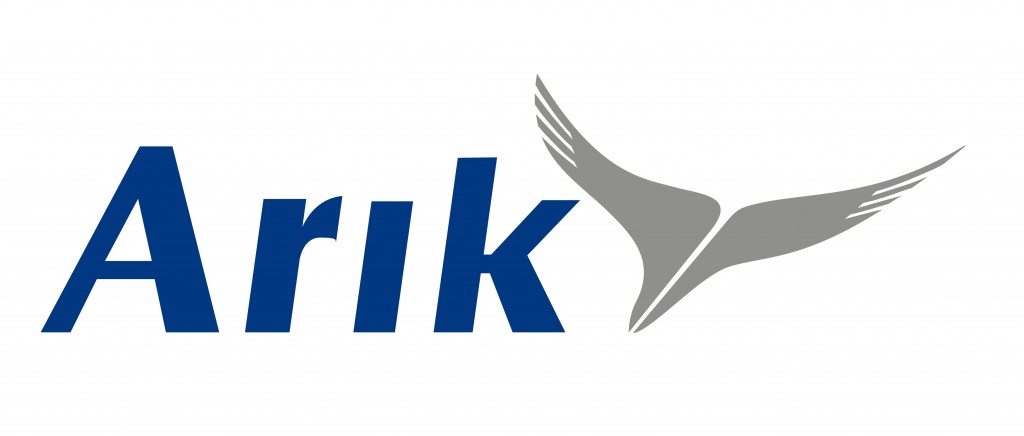News
Austin Okere to Keynote as Tunde Coker Chairs MoDiTECH 2019

Mr. Austin Okere, Founder & Vice Chairman, CWG Plc, will present the keynote at the maiden edition of Mobile & Disruptive Technology Forum (MoDiTECH 2019) holding on October 24, 2019 in Lagos State, Nigeria.
ModiTECH’19 is being organised by TechEconomy.ng in collaboration with Nigeria CommunicationsWeek, as a platform for inter-sectorial review of economic impacts of technologies; giving particular attention to the disruptive potentials of emerging solutions supported by the Artificial Intelligence, Machine Learning, Data Analytics, Robotics, FinTechs and mobile phone economy around retail and service provision
The event under the theme: “The Power of Digital Services”, holds at Victoria Crown Plaza Hotel (VCP), 292B, Ajose Adeogun Street, Victoria Island, Lagos under the chairman of the Managing Director of Rack Centre, Dr. Ayotunde Coker, while the Chairman, Connect Technologies & Africa Chair for IEEE, Chris Uwaje (Oracle), is the co-chairman and will moderate a session on digital disruptions.
Dr. Isa Ibrahim Pantami, Minister of Communications, is the special guest of honour. Other special invitees expected at the Forum are Prof. Umar Danbatta, Executive Vice Chairman of the Nigerian Communications Commission (NCC), Kashifu Inuwa Abdullahi, the Director General of the National Technology Development Agency (NITDA), Mr Tony Ojobo, the President, African ICT Foundation (AfICTF), Mr. Muhammed Rudman, President of NiRA, among others.
Other speakers include, Dr. Obadare Peter Adewale, the Co-Founder/COO, Digital Encode; Dr. Oluseyi Akindeinde, Co-founder/CTO, Digital Encode; Dr. Babatunde Obrima, the Chief Operating Officer, FinTech Association of Nigeria (FinTechngr); Toyosi Akerele-Ogunsiji, Founder Rise Labs; Debbie Michael, Nigeria’s First AI powered Learning, Research & Work Readiness Centre; Engr. Frank Ogochukwu, Chief Technology Strategist, Consulting & Board Member Global Advisory Council, EC-Council; Tunde Ogungbade, Managing Director of Global Accelerex Limited, amongst others.
The Keynote Speaker
Mr. Okere is a respected personality in the Nigerian IT/ICT industry, Africa and indeed the world. He is also the Entrepreneur in Residence, Ausso Leadership Academy. Austin is a member of the World Economic Forum Business Council on Innovation and Intrapreneurship.
He serves on the Board of the National Competiveness Council of Nigeria and Initiative for Global Development.
He is also a Fellow of the Institute of Directors of Nigeria.
Austin is a graduate of Computer Science from the University of Lagos and holds an MBA degree from the International Graduate School of Management (IESE), Navara, Spain. He possesses an unprecedented flair for visioning, strategy and branding.
He is a member of several professional and leadership bodies, including ICT Advisory Board, Nigerian Competitive Council and Nigerian Economic Summit Group.
He also serves on the Executive Committee of the Nigerian-South African Chamber of Commerce.
Austin has been recognized and honored locally and internationally with many awards in recognition of his contribution to the Information and Communications Technology world. He was named ICT Personality of the year 2014 by the Nigerian Computer Society and ICT Man of the Decade by ICT Watch Africa Digital Network in 2012.
His most recent recognitions are; 2016 NCS Presidential Award for promotion of ICT in Nigeria, Announced as member of the Global Business School Network Advisory Board and was named as one of Nigeria’s Top 50 Tech-Titans at the Titan of Tech Awards 2016.
He is currently an Entrepreneur in Residence at Massachusetts Institute of Technology’s Legatum Centre as well as Columbia University, New York.
Chairman of the occasion
Dr Ayotunde Coker has over 30 years’ international experience across Europe, USA, Asia and Africa. He was born in Nigeria, went to school in Lagos, and university in the UK.
His distinguished career of 28 years in the UK, included roles as Management Consultant Cap Gemini UK, Director Egg Bank the first European Internet Bank, Global Applications Director BP, CTO UK Criminal Justice, IT Director, Ministry of Justice.
He returned to Nigeria in 2009 as Group CIO of Access Bank, and then MD/CEO of Emerging Markets Payments, West Africa. As MD/CEO, he has led Rack Centre to become a household name in Nigeria, leading brand in Africa with global recognition and numerous international awards. He is Secretary General of the Africa Data Centre Association.
He is an award-winning post graduate alumnus of Cranfield Institute of Technology UK, Fellow Institute of Directors (UK), Fellow British Computer Society, Honorary Senior Member Chartered Institute of Bankers of Nigeria.
He holds a PhD (Honoris Causa) by ESCAE University, Republic of Benin.
He was recently identified in the Power 200: The Worlds Most Influential Data Economy Leaders by the Data Economy Magazine in the UK
MoDiTECH 2019
The Forum sponsored by Digital Encode, Global Accelerex, Medallion Communications and hosts of others has been endorsed by, ATCON, InnovationBed Africa and ALTON, FinTechNgr and AfICT.
It will feature C-Level executives including CEOs/CFOs/CROs/CCO/CIO; Directors and Heads of trading, operations, research, analytics, investment, strategy, digital, compliance, risk and data analysts; and senior regulators and policymakers; drawn from the FMCGs, Financial Industry including Fintechs, Banks, Insurance Companies, etc., AgriTech, Logistics, Cyber security companies, amongst others.
Interested corporate/individual participants can register via next.techeconomy.ng or contact the organisers via email: Next@TechEconomy.ng : Chike – 08033800291 or Peter- 08184346261 for sponsorship and exhibition space reservation.
News
UK Minister for Africa Visits Nigeria to Deepen Strategic Partnership

The United Kingdom’s Minister for Africa, Lord Collins of Highbury, has concluded a three-day visit to Nigeria, aimed at reinforcing the UK-Nigeria Strategic Partnership.

He reaffirmed the UK Government’s strong commitment to deepening trade and investment ties between the United Kingdom and Nigeria.
During his visit, Lord Collins met with senior Nigerian government officials, business leaders, civil society representatives and United Nations agencies.
These engagements underlined the UK’s long-term drive to support Nigeria’s prosperity and stability while deepening bilateral cooperation for transformative growth across our shared priorities.
A key highlight of the visit was Lord Collin’s bilateral meeting with Nigeria’s Minister of Foreign Affairs, Yusuf Tuggar, in which both parties reaffirmed their unwavering commitment to strengthening economic ties and promoting regional security. The Minister was joined by the UK’s Trade Envoy to Nigeria, Florence Eshalomi MP.
Lord Collins also met with Deputy Speaker of the House of Representatives, Hon. Benjamin Kalu, and discussions focused on opportunities to strengthen engagement between UK’s parliament and Nigeria’s National Assembly and the importance of furthering women’s participation in politics.
Speaking on his visit, the UK Government’s Minister for Africa, Lord Collins said: “Nigeria and the UK share a rich, ambitious relationship: one that is deeply rooted in respect.
“Our Strategic Partnership is at the forefront of this, and my visit has focused on how our countries can continue deepening our cooperation on key issues such as trade and investment to drive economic growth and deliver prosperity for us all.”
The Minister held discussions with United Nations representatives on the ongoing reform of the UN system, its implications for Nigeria and how the reform can effectively support those most in need, particularly in Northeast Nigeria, whilst also contributing to global humanitarian efforts.
Lord Collins also met with civil society leaders to discuss electoral integrity and governance reforms, reinforcing the UK’s commitment to democratic values and community empowerment.
He later visited Nigeria’s Anti-Kidnap Fusion Cell: a key security initiative supported by UK expertise through the National Crime Agency and the Integrated Security Fund, which plays a vital role in enhancing local safety and combating serious crime.
Also commenting on the visit, the British High Commissioner to Nigeria, Dr Richard Montgomery, said: “Driving growth is central to the UK’s foreign and development policy. Lord Collins’ visit to Nigeria underscores the UK’s unwavering commitment to deepening our shared prosperity through expanded trade and investment. We are proud to stand alongside Nigeria as it forges a resilient and dynamic economy.”
This visit underscores the UK’s enduring partnership with Nigeria – built on mutual respect, shared goals, and a vision for a prosperous future for both nations.
News
PalmPay Launches CSR Initiatives to Empower Women, Foster Financial Literacy in Northern Nigeria

In a strategic move to expand financial inclusion in Nigeria, leading mobile banking platform, PalmPay has launched a series of CSR programs across Kano and Kaduna. The CSR initiative named “Passing the Baton” represents the brand’s commitment to passing on knowledge and providing the resources individuals and businesses need to achieve financial independence and drive economic empowerment.

This initiative is a bold move by PalmPay to bridge the opportunity gap in the North by providing financial literacy training and micro-business branding support to 5,000 women-owned businesses in Kano and Kaduna. This strategic initiative reaffirms PalmPay’s commitment to inclusive development and economic empowerment, particularly in underserved regions.
“At PalmPay, we believe that real financial inclusion must be far reaching and cover the grassroots,” said Chika Nwosu, Managing Director of PalmPay. “Our new CSR program is focused on supporting gender equity by equipping women with the knowledge, tools, and visibility they need to thrive as entrepreneurs in their communities.”
Through this initiative, beneficiaries will receive free health insurance, hands-on training workshops, enhanced store branding to boost visibility, and branded merchandise to strengthen their business presence.
The initiative is part of PalmPay’s broader strategy to extend its innovative solutions, expand its footprint in Northern Nigeria, while building sustainable partnerships with local stakeholders for long-term impact.
In a show of support, His Royal Highness, the Emir of Kano, Dr. Muhammadu Sanusi II, has endorsed the initiative, calling on other stakeholders to join forces with PalmPay in ensuring the North benefits fully from the growing digital economy. PalmPay has received commendation from community stakeholders, as the initiative aims to serve as a model for similar projects across other northern states.
As PalmPay continues to scale across Nigeria, the company remains committed to bridging the financial inclusion gap and empowering underserved groups, particularly women and youth, through its innovative solutions and impact initiatives.
News
EFCC Witness Admits Writing Off Arik Air’s $2.3M Debt Amid N76Bn Fraud Trial



 Telecom3 days ago
Telecom3 days agoMTN Nigeria Invests ₦900Bn in 2025 to Boost Network Quality in Lagos & Abuja

 E-Business3 days ago
E-Business3 days agoFirm Reports a 48% Increase in Malicious Packages Threatening Software Supply Chains

 News3 days ago
News3 days agoEFCC Witness Admits Writing Off Arik Air’s $2.3M Debt Amid N76Bn Fraud Trial

 Telecom2 days ago
Telecom2 days agoGlo, Huawei, Communications Ministry Bring Digital Services to Abuja Village

 Telecom3 days ago
Telecom3 days agoMTN Nigeria Wins Award for Best Use of Data @MarkHack 4.0 Awards Night

 E-Financial2 days ago
E-Financial2 days agoSEC Alerts Public on Silverkuun, Trending Dubious Investment Schemes

 News3 days ago
News3 days agoSERAP Urges National Assembly to Reject Tinubu’s $24Bn Loan Request Over Debt Concerns

 E-Financial3 days ago
E-Financial3 days agoSenate Passes Harmonised Report on Tax Reform Bills




























